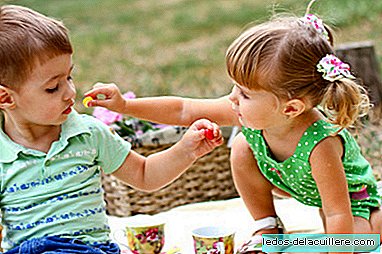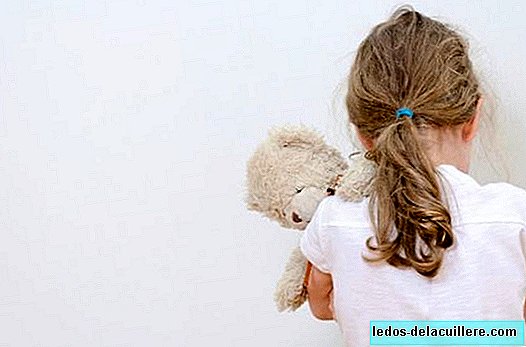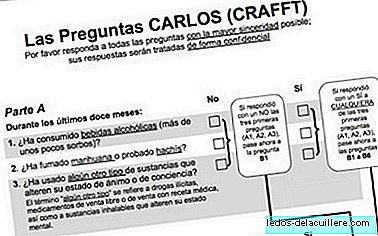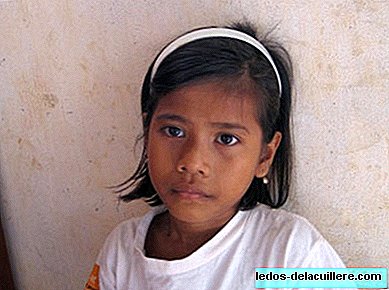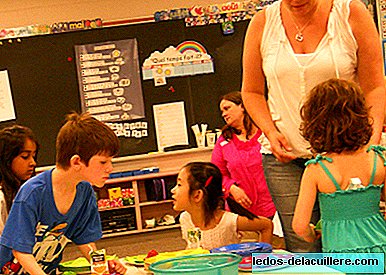
My son was only one year in Early Childhood Education because we wanted him to join the school late, a few weeks before we started Primary in a new school we had moved and we barely had time to prepare. The change was quite big and we all got 'full' into an adaptation that cost us a lot, I remember how anecdote that I had described in a folio (which I would then deliver to the teacher) to the child, adding aspects such as his abilities, abilities and the way he likes to learn ...
Looking at the three photos of my daughter's class, it is obvious that she was not there when the group first attended Infantil, for her it has been two intense years in which she has worked hard in every way, and for me an experience enriching that has allowed me to collaborate with the teacher and get involved in different complementary activities.
Every child is different, and although I have been through this before, I know that the transition from Infant to Primary involves significant changes, and that Children need a lot of support from their families. It will be noticed especially in the incorporation of different subjects from each other (far from the integrative learning that I would like), the change of building, classroom (and furniture) larger, and the methodology they will use. I am aware that in the last two years we have begun to work in our school, for projects in some subject of the first cycle of Primary, but still the little ones that change of Stage will face a more individualized way of working and an assignment of repetitive tasks, and sometimes decontextualized (as Mari Luz told us in this interview).
As I know that the family's performance is decisive in adapting to all these changes, I wanted to reflect with you about our role as parents and parents. It is possible that there are children who are able to accept the changes that are coming with a relative naturalness. But for any parent who knows how to attend to emotions and listen, there will be many ends to bind and many uneasy looks to decipher
How can the family help with the change of stage:
Start the course with confidence and joy, avoiding the negative connotations that we may have assumed internally. If there are aspects of schooling that we do not like, we will expose them to children clearly, with a critical spirit: it is necessary to understand the school with all its nuances, the things we accept, and those we would prefer to change. It is the best way not to confuse children, who on the other hand must make their own idea, and have the right not to be transmitted unnecessary 'uncertainties'.
It is convenient go to the meetings proposed by the tutor, and if not possible, individualized tutorials should be arranged. When we meet with the teacher, it is not just about listening to him and writing down his observations, it is our obligation to contribute, dialogue, and even speak of the teacher (when the occasion requires it and always with respect), because what is at stake is The education of our childrens.
In fact, primary school children are very similar to those of Infant from the evolutionary point of view: they are still very small, and yet they face changes for which transitions are rarely expected
- Pay close attention to the mood of our children during the first weeks of school, and even entered the month of October (when they start having more class hours). A moment should be devoted every day to ask, listen, understand and look for strategies that allow them to face difficulties.
Regardless of whether the child likes school or not, it would not be 'normal' that by the middle of November, significant changes persist in the child. If necessary, it will be necessary to talk with the mothers of their friends or with the teacher, in order to find out if something is happening to them that we are not aware of.
- The pillar of children's autonomy and self-esteem is usBut we should not understand autonomy only as the ability to dress alone, remember tasks (complicated mission when they are so small) or brush their teeth without our help. Because more important than the motor and academic autonomy is that which concerns emotional growth and the ability to interact in society.
What is really important is that they know that they have their parents to support them in solving problems, and that they have their 'unconditional' love, regardless of their evolution in school, how many friends they have, or if they finish lunch. At home is where they can express themselves freely and demand attention from the people responsible for their care and protection
- Children of six and seven years (and until later) they still need many hours of play a day, and the 30 minutes of recess are entirely insufficient, so we must provide enough space and time to spread. I think that children who are in Primary should not take home school assignments, and if they do they should be those who have not finished in class, since it is not convenient for the school to interfere in one of the healthiest ways of relating and learning that exist: play.
I have inserted this update to clarify regarding the duties that although I am not an advocate of homework, when I mentioned 'not take them home while they are in Primary' I was referring to the first cycle of the Stage (first and second year). From there, if they are well managed and the children do not dedicate a total of more than one hour a day in the upper courses, I do not have many problems, although I still think that the five hours of school are enough.
Teaching to take care of materials with love and provide them with stimuli from home (reading, board games, technology, etc.), also reinforce learning, while allowing us to approach our children. As first responsible for the education of our children, let us try (according to G. Howard Hendricks) 'a teaching from heart to heart', and we transmit this idea to teachers and the rest of the educational community.



